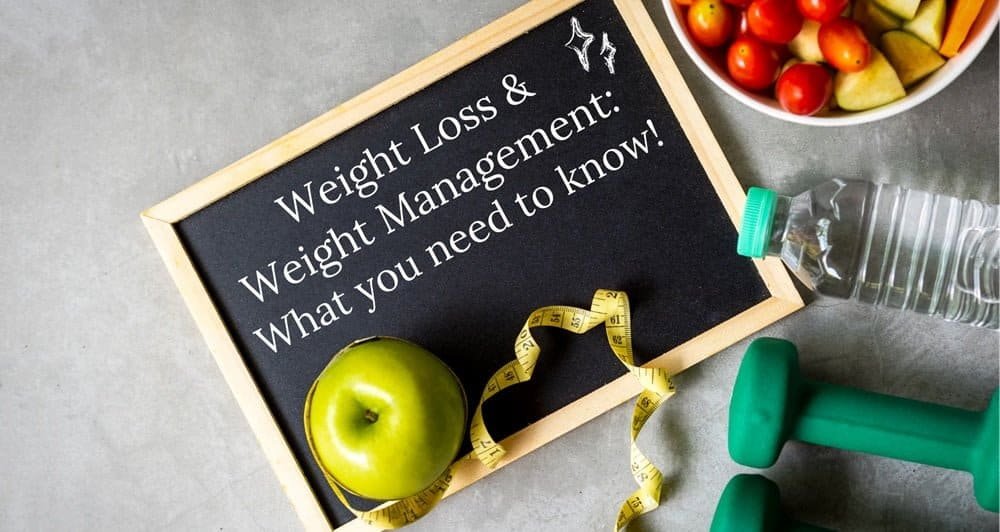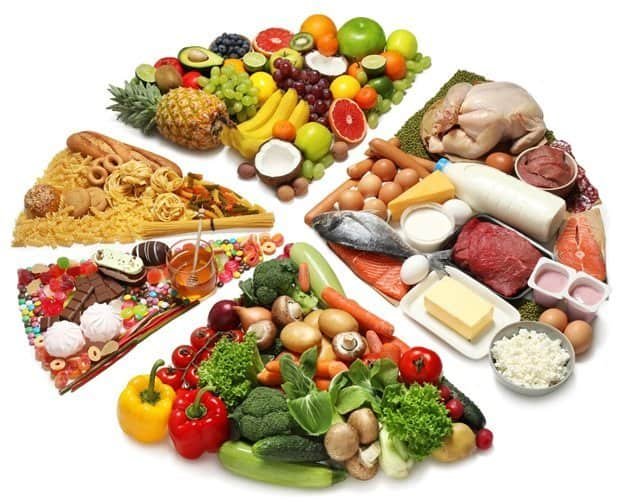
Introduction to Weight Loss
Imagine you’re standing at the entrance of a maze, with paths all marked as the exit. That’s what the world of weight loss can feel like. There are so many differing opinions on weight loss, so many tales of instant weight loss with the right pill and the newest fad diet. It can be easy to get lost in the treacherous sea of misinformation.
Embarking on a weight loss journey is difficult and not for the faint of heart. Your journey is uniquely yours, whether you’ve embarked on it to improve your health or enhance self-confidence.
While countless diets, exercise regimes, and lifestyle changes are promoted as the one true key to shedding unwanted pounds. The one truth is that successful and sustainable weight loss is not about quick fixes or extreme measures. It is an expansive process that involves understanding your body, making informed choices, adopting healthy habits that you can maintain in the long term, and partnering with a trusted medical professional.
Let’s examine the different aspects of losing weight, disprove common myths, and offer proven strategies to help you reach your weight loss goals. Whether you are just starting your weight loss journey or aiming to improve your approach, we’re here to help!
In this guide, we’ll explore:
- The real science behind weight loss (no complicated jargon, I promise!)
- Nutrition tips that nourish your body and soul
- Fun ways to get moving
- How to stay motivated when Netflix and pizza call your name
So, grab a cozy drink, get comfy, and let’s start this adventure together. Your future self is already cheering you on!
Understanding Weight Loss
The Science Behind Weight Loss
At its core, weight loss is about energy balance. When you consume fewer
calories than your body burns, you
create a calorie deficit, which leads to
weight loss. This principle is based on
the first law of thermodynamics, which
states that energy cannot be created
or destroyed, only converted from one
form to another.
Your body uses calories from food for
various functions, including
maintaining basic life processes (basal metabolic rate), digesting food
(thermic effect of food), and physical
activity. When you consume fewer
calories than your body needs for
these functions, it starts using stored
energy, primarily in the form of fat,
leading to weight loss.

However, it’s important to note that weight loss is not always linear. Factors such as hormones, sleep quality, stress levels, and individual metabolism can influence how quickly and efficiently your body loses weight.
We know that you are not a mathematical equation. Everybody is different, with a host of considerations like age, metabolism, and hormones to consider.
Common Myths and Misconceptions
You may have come across magazine covers promising “Ways to Shed 10lbs before the Holidays” right next to “The Best Chocolate Cake Recipe ever!” Add in hundreds of social media posts sharing weight loss success stories from influencers without any medical training, and suddenly you’re second-guessing the proven science behind sustainable weight loss–it’s a slippery slope of quick fixes and misinformation. The sheer amount of myths surrounding weight loss can mislead you and hinder your progress. Let’s debunk some common misconceptions:
Myth 1. “Carbs are the enemy”: While reducing refined carbohydrates can help with weight loss, it’s important to note that not all carbs are bad. Complex carbohydrates from whole grains, fruits, and vegetables are essential for a balanced diet. Besides, can anyone really agree to give up carbs forever? Even those influencers can’t! They just call it a Cheat Day.
Myth 2. “Fat makes you fat”: Dietary fat is necessary for hormone production and nutrient absorption. Healthy fats from sources like avocados, nuts, and olive oil can actually support weight loss.
Myth 3. “You need to exercise for hours every day”: While regular physical activity is important, quality often trumps quantity. Basic bodyweight workouts and high-intensity interval training (HIIT) can be more effective for weight loss than endless cardio or long, moderate-intensity workouts.
Myth 4. “Skipping meals helps you lose weight”: This often backfires as it can slow down your metabolism and lead to overeating later. This is especially true if you are triggered by the idea of denying yourself a specific type of category of food! All you are doing is making a denied-but-delicious food a forbidden and more delicious fruit, and setting yourself up for failure. Weight loss is a mental game, too.
Myth 5. “Certain foods ‘burn’ fat”: No food can magically burn fat. Some foods may slightly increase metabolism, but the effect is minimal. Repeat after me: No food can magically burn fat.
Importance of Sustainable Weight Loss
I wish that I had a magic wand for you, but I don’t. Crash diets and extreme measures may offer quick weight loss, but they are unsustainable and can be detrimental to your health. Sustainable weight loss requires making long-term lifestyle changes that you can maintain indefinitely. It’s crucial to focus on balancing the physical and mental challenges associated with weight loss over time instead of seeking rapid results through short-term fixes like two-week cleanses.
Sustainable weight loss typically involves aiming for a slower rate of 1-2 pounds per week. This approach is more likely to lead to lasting changes and helps preserve vital muscle mass, which is essential for maintaining a healthy metabolism.
Moreover, sustainable weight loss goes beyond achieving a specific number on the scale. It’s about improving overall health, boosting energy levels, and enhancing quality of life. This means developing a healthy relationship with food, engaging in regular physical activity, and establishing habits that support your well-being for a long, healthy, and happy life.
Nourish your body for life, not just for the season.
Diet and Nutrition
Balanced Diet Fundamentals
One of the most vital steps you can take is to change your relationship with food. A balanced diet is essential for healthy weight loss, and it should include a variety of foods from all the food groups to ensure you get all the necessary nutrients your body needs. To maintain a balanced diet, it’s important to include the following key elements:
- Lean Protein: Incorporate sources such as poultry, fish, eggs, and legumes, as these are rich in essential amino acids necessary for muscle maintenance and repair.
- Whole Grains: Opt for whole grain options such as quinoa, brown rice, and whole wheat bread over refined carbohydrates, as they provide vital nutrients including fiber, B vitamins, and iron.
- Healthy Fats: Essential for hormone production and nutrient absorption, healthy fats derived from avocados, nuts, seeds, and olive oil are beneficial for heart health and overall well-being.

4. Fruits and Vegetables: Rich in essential vitamins, minerals, and dietary fiber, a varied selection of fruits and vegetables promotes overall health and helps reduce the risk of chronic diseases.
5. Dairy or Dairy Alternatives: Whether choosing dairy or alternatives such as fortified plant-based milk, these sources are important for obtaining calcium and vitamin D, which are essential for bone health and overall immune function. Opt for low-fat options if managing calorie intake.
Role of Hydration
Proper hydration is often overlooked in weight loss, but it’s crucial. Water helps flush out toxins, supports metabolism, and can help you feel full. Sometimes, thirst can be mistaken for hunger, leading to unnecessary snacking.
Aim to drink at least 8 glasses (64 ounces) of water daily, more if you’re physically active or in a hot climate. Unsweetened herbal teas and infused waters are refreshing and flavorful alternatives to plain water without any extra calories, giving you the satisfaction of enjoying a tasty beverage without sacrificing your health goals.
Exercise and Physical Activity
Types of Exercises
The key to exercise is to find something that you enjoy! Whether it is swimming, a sport, or even dancing in front of a YouTube video–get your body moving! A well-rounded exercise routine should include both cardio and strength training:
- Cardiovascular Exercise: This includes activities like walking, jogging, cycling, swimming, or dancing. Cardio burns calories and improves heart health.

- Strength Training: Lifting weights or bodyweight exercises help build muscle, which increases your metabolic rate. Aim for at least two strength training sessions per week.
- High-Intensity Interval Training (HIIT): Alternating between high-intensity bursts and rest periods can be very effective for burning fat.
- Flexibility and Balance: Exercises like yoga or Pilates can improve overall fitness and reduce the risk of injury, very important considerations for your health and weight loss journey.
It’s important to remember that consistency is king when it comes to exercise for weight loss! Regular physical activity not only burns calories but also improves your metabolism, mood, and overall health. Even on days when you don’t feel like exercising, try to do something active. Even if it’s just a short walk, remember you’re still lapping everyone on the couch!
Lifestyle Changes for Weight Loss
Developing Healthy Eating Habits
Healthy eating habits encompass more than just choosing the right foods. Keep in mind that weight loss is also a mental game. Your mindset, habits, and eating patterns all influence your well-being and weight loss journey. Some of our favorite habits include:
- Mindful Eating: Be present while eating – savor each bite, avoid distractions, and sit down to fully appreciate your meal. This can help prevent overeating.
- Portion Control: Pay attention to serving sizes, using small plates or your hand as a guide. Knowing the right portions can go a long way in managing intake.
- Meal Planning: Map out balanced, nutritious meals in advance to ensure you make healthful choices.
- Home-Cooked Meals: Preparing food at home gives you control over ingredients and portions, plus it’s more cost-effective.
- Limit Processed Foods: Though tempting, these are often high in calories, sugar, and unhealthy fats. Remember, major food companies design these items to be as irresistible as possible.
Managing Stress
Managing stress is a critical aspect of successful weight loss efforts. Chronic stress can significantly impact our ability to stick to healthy eating and exercise routines due to its effects on our hormones and emotions. Moreover, stress can lead to emotional eating, cravings for high-calorie foods, and poor sleep, all of which can hinder weight loss progress.
Importance of Sleep
We can’t emphasize the importance of sleep enough! It is crucial to prioritize getting an adequate amount of sleep as it plays a significant role in weight management. Inadequate sleep can disrupt the balance of hunger hormones in the body, leading to increased feelings of hunger and stronger cravings. Aim to get between 7 to 9 hours of high-quality sleep each night. Establishing a consistent sleep schedule by going to bed and waking up at the same time every day, as well as implementing a calming bedtime routine, can greatly improve the quality of your sleep.
Weight Loss Challenges and How to Overcome Them
Dealing with Plateaus
When you experience a weight loss plateau, it’s important to reassess your approach to ensure you continue making progress. Here are some steps you can take:
- Reassess your calorie intake: As you lose weight, your body’s energy needs decrease. It’s important to recalculate your daily calorie intake to account for your new weight and ensure you are in a calorie deficit.
- Change up your workout routine: Your body can adapt to a regular exercise routine, leading to a plateau in your fitness and weight loss progress. Introducing new exercises, increasing the intensity, or trying different workout modalities can help break through the plateau.
- Increase the intensity or duration of workouts: If you’ve been doing the same workouts for a while, consider increasing the intensity or duration of your workouts to challenge your body in new ways.
- Ensure you’re getting enough sleep and managing stress: Lack of sleep and high-stress levels can negatively impact your weight loss efforts. Aim for 7-9 hours of quality sleep each night and incorporate stress-reducing activities such as meditation or yoga into your routine.
- Be patient: Plateaus are often temporary. Stay consistent with your healthy habits and trust the process. It’s normal to experience fluctuations in your weight loss journey, and being patient and persistent will help you push through the plateau.
Managing Cravings
Cravings can be a major obstacle when trying to lose weight and maintain a healthy diet. To effectively manage and overcome cravings, it’s important to implement various strategies:
- Identifying triggers: Take the time to understand what triggers your cravings. Do certain emotions or situations prompt the desire for specific foods? By recognizing these triggers, you can develop strategies to address them.
- Distraction: When cravings strike, engaging in a different activity can help divert your attention away from the urge to indulge. Whether it’s going for a walk, reading a book, or doing a puzzle, finding a healthy distraction can be effective in reducing the intensity of cravings.
- Allowing occasional treats: Complete restriction of all your favorite foods can often backfire and lead to overindulging later on. Allowing yourself occasional treats in moderation can help satisfy cravings while still maintaining a balanced diet overall.
- Ensuring balanced meals: Consuming meals that are well-balanced and provide the necessary nutrients can help in preventing cravings. Including a mix of protein, healthy fats, and complex carbohydrates in your meals can help stabilize blood sugar levels and keep cravings at bay.
- Staying hydrated: Dehydration can sometimes be mistaken for hunger, leading to unnecessary snacking and cravings. Drinking an adequate amount of water throughout the day can help ensure that you’re properly hydrated and can help prevent cravings from occurring.
Consulting Healthcare Providers
Having extra weight comes with a stigma in our current society, and weight management can be hard to do on your own. So when is a good time to reach out to your healthcare provider? The best answer is to reach out to your healthcare provider before you start, or if you find yourself struggling to lose weight.
Before you embark on any substantial weight loss program, it’s a great idea to seek advice from healthcare professionals, particularly if you have any preexisting health conditions or are currently on medications. This can ensure that your chosen approach is safe and suitable for you by looking into your medical history and tailoring recommendations to you. They can also help monitor your progress through regular check-ins, measure key health indicators, and give helpful feedback or adjust recommendations and interventions as necessary.
If you’re already on your journey and find that you’re really struggling to lose weight, or you’re not seeing the results you were hoping for, then consider reaching out to a healthcare provider to identify and address any underlying health issues, or to recommend alternative weight loss solutions, such as GLP-1 medications–this is one of our specialties at Hamilton Health and Wellness.

Conclusion: We’re Here to Help
Navigating the path to weight loss is a complex journey that goes beyond simply changing eating habits and increasing physical activity. Attaining and sustaining a healthy weight requires a comprehensive approach involving nutrition, exercise, lifestyle adjustments, and overall well-being. It’s crucial to understand that sustainable weight loss is a gradual and ongoing process. It’s not about striving for perfection; rather, it’s about consistently making healthy choices over time.
For those starting or continuing their weight loss journey, it’s vital to practice patience and self-compassion. Recognize and celebrate your progress, learn from any setbacks, and understand that your worth is not determined by the number on the scale. Focus on developing habits that improve your overall health and wellness, and weight loss will follow naturally.
Ultimately, successful weight loss is about pursuing a healthier, happier version of yourself. It’s about more than just losing weight; it involves gaining renewed energy, self-confidence, and an improved quality of life. With the right knowledge, tools, support system, and mindset, you can achieve your weight loss goals and maintain a healthy weight in the long run.
At Hamilton Health & Wellness, we understand that achieving and maintaining a healthy weight can be a complex journey. If you’re having trouble losing weight, then schedule a 15 minute consultation with a Healthcare Provider where you can ask all of your questions and get more information.
We believe you should feel comfortable with all medical decisions before giving any financial information. No trickery, no hokum. No financial fee for getting your questions answered. It’s about YOU and your health. Schedule your telehealth appointment today!
Ready for lasting weight loss? Explore our essential guide to weight loss and weight management now.
Love what you’re reading? Don’t miss out on the latest insights, tips, and inspiration! Subscribe to our blog and get fresh content delivered straight to your inbox.
📬 Be the first to know.
💡 Gain valuable ideas.
🎉 Join a growing community of informed minds.
Fill out the form, submit, and let’s keep the conversation going.🌟
